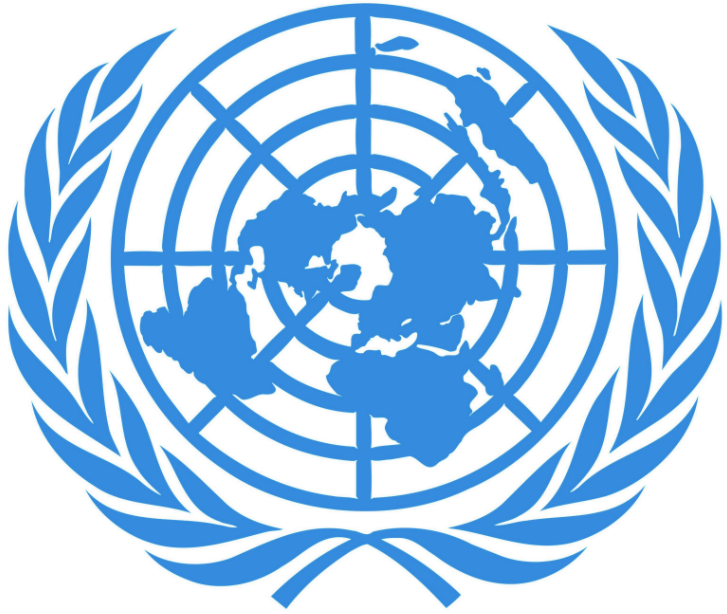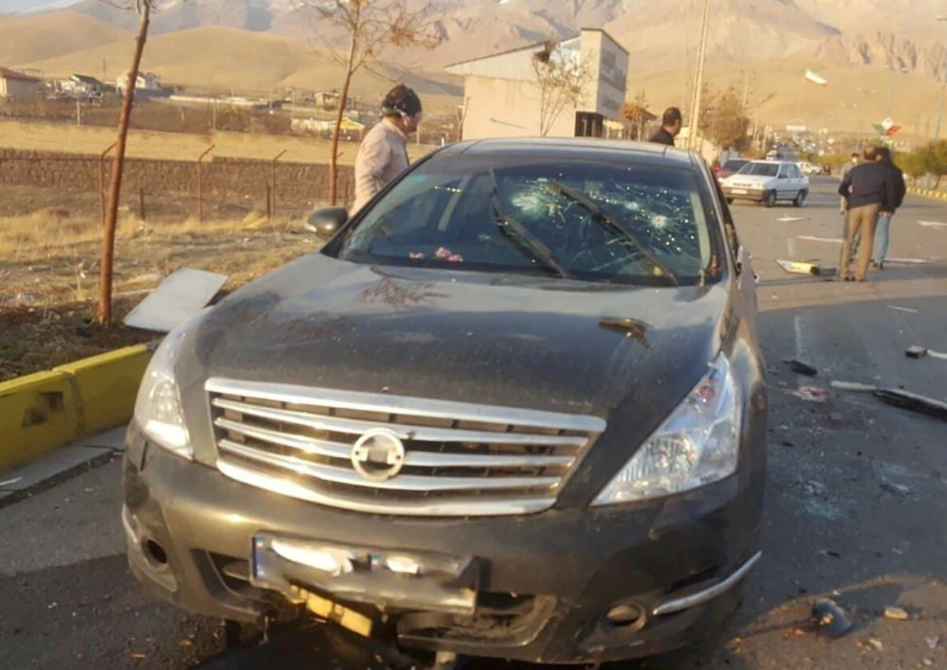October 08, 2021
Iran is having yet another problem with the Republic of Azerbaijan, whose troops have been blocking trucks from Iran using the highway along the Armenia-Azerbaijan border to deliver goods to Armenia and, perhaps of more concern to Baku, deliver goods to Nagorno-Karabagh, the Armenian ethnic enclave inside Azerbaijan.
Azerbaijan has said nothing publicly about its interdiction but Iran has said a lot and is most peeved.
Many outsiders have spoken of the possibility of war. But neither country wants war. The Islamic Republic is simply doing what it always does scream loudly and pound the table.
As the maps on Page 11 show, the highway between Kapan and Goris runs right along the Armenia-Azerbaijan border and in some spots is actually inside Azerbaijan. This didn’t mean anything when Armenia and Azerbaijan were both part of the Soviet Union and the borders didn’t amount to much. It also didn’t mean anything the last 30 years when Armenia occupied the districts of Azerbaijan just opposite the border. But it means a lot now that Azerbaijani troops are sitting on the parts of the highway that are on the Azerbaijani side. Some reports say 21 kilometers (13 miles) of the road are on the Azerbaijani side.
Armenian media have said that only trucks and cars with Iranian license plates are being stopped.
The Iran-Armenia Chamber of Commerce said Iranian truckers have been charged the equivalent of $130, and sometimes more, since early September to use the highway. Furthermore, Iran says two truck drivers have been arrested and are still detained by Azerbaijan.
Iran has agreed with Armenia to improve another road further to the west that passes through the town of Tatev so Iranians would not have to use the road adjacent to the border. Iran also says it will fund a re-alignment of the highway along the border so it falls entirely within Armenia. But neither of these changes can be accomplished quickly.
In Baku, many members of parliament erupted in fury against Iran, apparently for its perceived support of Nagorno-Karabagh. The Iranian Students News Agency (ISNA) said some lawmakers publicly threatened the “territorial integrity” of Iran and insisted they would divide up Iran, presumably a claim to annex the parts of Iran that are home to many Azerbaijani ethnics.
Last fall, in a six-week war, Azerbaijani troops smashed the Armenian Army and the Nagorno-Karabagh troops, forcing them to give up the Azerbaijani land they had seized 30 years earlier. The battered Armenians are in no position to get tough with Azerbaijan.
Another road, the Lachin Corridor highway (see map below), gives Armenia (and Iranian trucks) access to Nagorno-Karabagh. Azerbaijan said it counted about 60 Iranian-licensed trucks crossing into Nagorno-Karabagh in the 32 days from August 11 to September 11. Under the ceasefire agreement, the Russians run that corridor to guarantee that Azerbaijan won’t sever that link. But the Russians aren’t on the Kapan-Goris Highway.
Officially, relations are fine between Iran and Azerbaijan. But actually, the secular Azerbaijani government is much peeved with Iran for sending Shia clerics into Azerbaijan to build religious fervor among Azer-baijanis. And Iran has long been peeved with Azerbaijan because so many people there but not the government promote the idea of union between the Republic of Azerbaijan and Iran’s provinces filled with Azerbaijani ethnics.
Iranian rhetoric reached a new level when the Islamic Republic this month tried to make its dispute with Azerbaijan a dispute over Israel, presumably calculating it could draw Arab support to its side. But the Arabs have shown no interest.
The Islamic Republic says it cannot tolerate an Israeli “presence” near Iran’s borders. It doesn’t say what that “presence” is, but uses the term to imply that Israeli ground combat units are poised just across the border. There are no signs, however, that any Israeli ground combat troops are or have ever been in Azerbaijan.
Israeli military advisers and weapons trainers are in Azerbaijan and have been there for decades. So, that is nothing new to warrant Tehran’s frenzy. It is also widely believed that Azerbaijan has allowed Israel to launch and recover spy drones from Azerbaijani territory. There are also suspicions that Israel may have directed its assassinations in Iran from Azerbaijani territory. A leaked memo from the US embassy in Baku described the Israeli-Azerbaijani relationship as “like an iceberg: nine-tenths of it is below the surface.”
Iran continues to scream that it “does not tolerate a Zionist presence” near Iran’s borders “and will take any necessary action in this regard,” in the words of Foreign Minister Hossain Amir-Abdollahian. But Israel has a right to a presence if Azerbaijan invites it. Despite Iran’s military saying the military exercise was just an ordinary maneuver planned long ago and lacking any political content, Abdollahian said October 2 that the exercise is meant “to relay a message to the Zionists.”
The next day, Supreme Leader Ali Khamenehi joined in warning against an Israeli “presence” in Azerbaijan.
The Israelis have ignored all the remarks; they just care about Iran’s nuclear program.
The Islamic Republic does have some real problems, however. Despite the fact that Armenia is a Christian state and Azerbaijan is one of only four countries with a Shiite majority, the Islamic Republic is effectively an ally of Armenia, which has enthusiastically linked itself to Iran to offset Azerbaijan.
Azerbaijan’s huge military victory last fall shows Azerbaijan’s armed forces are not the joke Tehran has long seen them as. What’s more, Azerbaijan has gotten major military aid from both Israel and Turkey Iran’s two main rivals in the region. (For years, Iran shouted about American military involvement in Azerbaijan, despite the fact it was only token. Now, Tehran has ceased even mentioning the Americans and avoids talking about the Turks while venting its spleen exclusively on the Israelis.)
Azerbaijan has effectively allied itself with the Pan-Turkism promoted by Ankara and rejected the pan-Shiism advocated by Tehran. (The Azerbaijani language is part of the Turkic family of languages.) That irks the Islamic Republic.
Early in October, Iran deployed ground troops near the border with Nakhichevan, the Azerbaijani exclave. That’s when Tehran began its venting against the Israeli “presence” in Azerbaijan.
On October 5, President Ilham Aliyev of Azerbaijan responded for the first time and effectively laughed at the Iranian activities, which, of course, infuriated Tehran even more. Aliyev said, “They are speaking as if Azerbaijan brought Israel to this region. Let them open their eyes and look. Where do they see Israel here? Not a single [Israeli] person lives here. There is not a single building here? Is there proof? No! I am saying this here in Jabrayil, along the Aras River [which is the border with Iran in the south]. Baseless allegations against the Azerbaijani nation will not go unanswered.”
Aliyev seemed to enjoyed tweaking the Islamic Republic. While in Jabrayil, he made a point of calling over photographers to get pictures of him smiling broadly as he cuddled up to an Israeli-made Harop drone.
He also called Iran’s response to the truck dispute “emotional.”
In its latest retaliation against Azerbaijan, Iran announced October 5 that it was banning further flights over Iran by Azerbaijani military jets flying to and from Nakhichevan. Azer-baijan said it would just fly them over Armenia, which is in no position to do anything about it.
In one of the more extreme flights of rhetoric, commentator Sadollah Zarei warned in the ultra-rightist daily Kayhan of a “concealed alliance among the US, Turkey, Azerbaijan, Armenia and Israel” aimed at bringing about “geopolitical change with strategic consequences against Iran and Russia.” The suggestion that Armenia was allied with Azerbaijan against Iran brought chuckles.
On top of all this, journalists, commentators, 165 Majlis deputies and assorted military and civilian officials of the Islamic Republic have this month been repeatedly expressing their strongest opposition to suggestions of changing borders in the region. This appears to be a response to a wild rumor going the rounds that Armenia is willing to accept a non-existent US and Turkish proposal that Armenia be given much of Nagorno-Karabagh in exchange for ceding its southernmost Syunik province to Azerbaijan. That would link Azerbaijan to Nakhichevan, but would mean Iran would no longer share a border with Armenia. It would also mean abandoning 150,000 Armenian citizens to Azerbaijan.

















